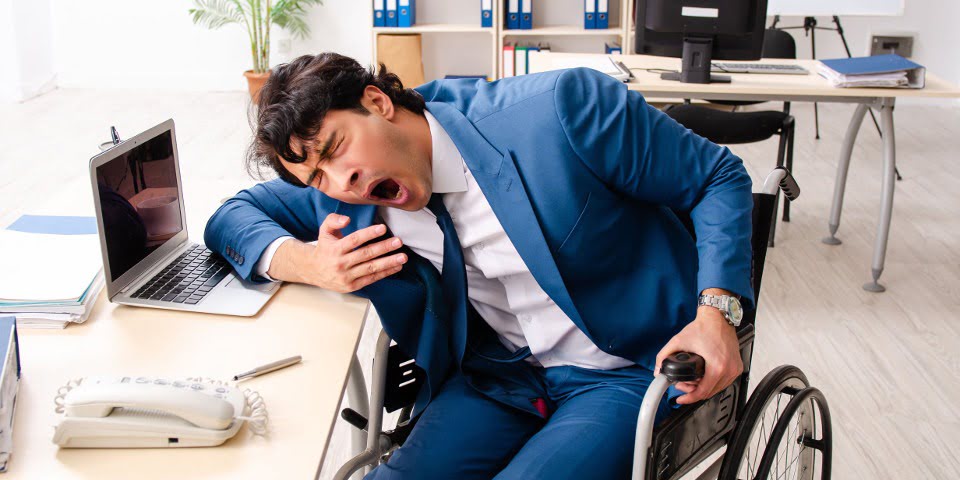More than 80 per cent of people with quadriplegic spinal injuries have sleep apnoea, but despite its significant effect on their lives, many don’t know they have it, Melbourne researchers have found.
The researchers from The Institute for Breathing and Sleep (IBAS) at Austin Health and The University of Melbourne say their studies show that 80 per cent of people with quadriplegia have serious tiredness and fatigue due to sleep apnoea.
They are calling for everyone with quadriplegia to see a doctor if they are tired and fatigued, particularly as many sufferers are unaware the condition can be treated.
Ben Gruter, who has T5 paraplegia and is a retired public servant, said: “I was so fatigued that I would fall asleep even when I was driving my wheelchair.” Today, his energy is said to be restored and his grandchildren ride around the block with him.
IBAS researcher Dr Marnie Graco, who recently completed her PhD on the subject, said: “We found that most cases are undiagnosed, with patients just assuming tiredness is just part of the burden of spinal cord injury.
“So, we reached out to patients and asked them if we could tell their story, to encourage everyone with spinal cord injury to talk to their doctor about sleep apnoea.”
The result is a series of video case studies released this week. The videos feature four people who found that acting on their sleep apnoea transformed their lives and their interactions with friends and family. The videos were produced with the support of the Transport Accident Commission.
“You might have sleep apnoea and not know it,” University of Melbourne and IBAS physiotherapist Professor David Berlowitz said. “If you snore, wake up tired, or you nod off during the day, go and see your GP for a sleep study and, if needed, a treatment plan. Sticking to the treatment plan may be challenging but it can make a huge difference to your daily life.
“These videos are critically important for our research because it’s people with spinal cord injury leading the charge, and our job as researchers is to respond to that community need.”






